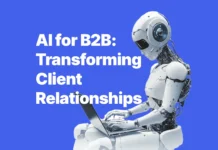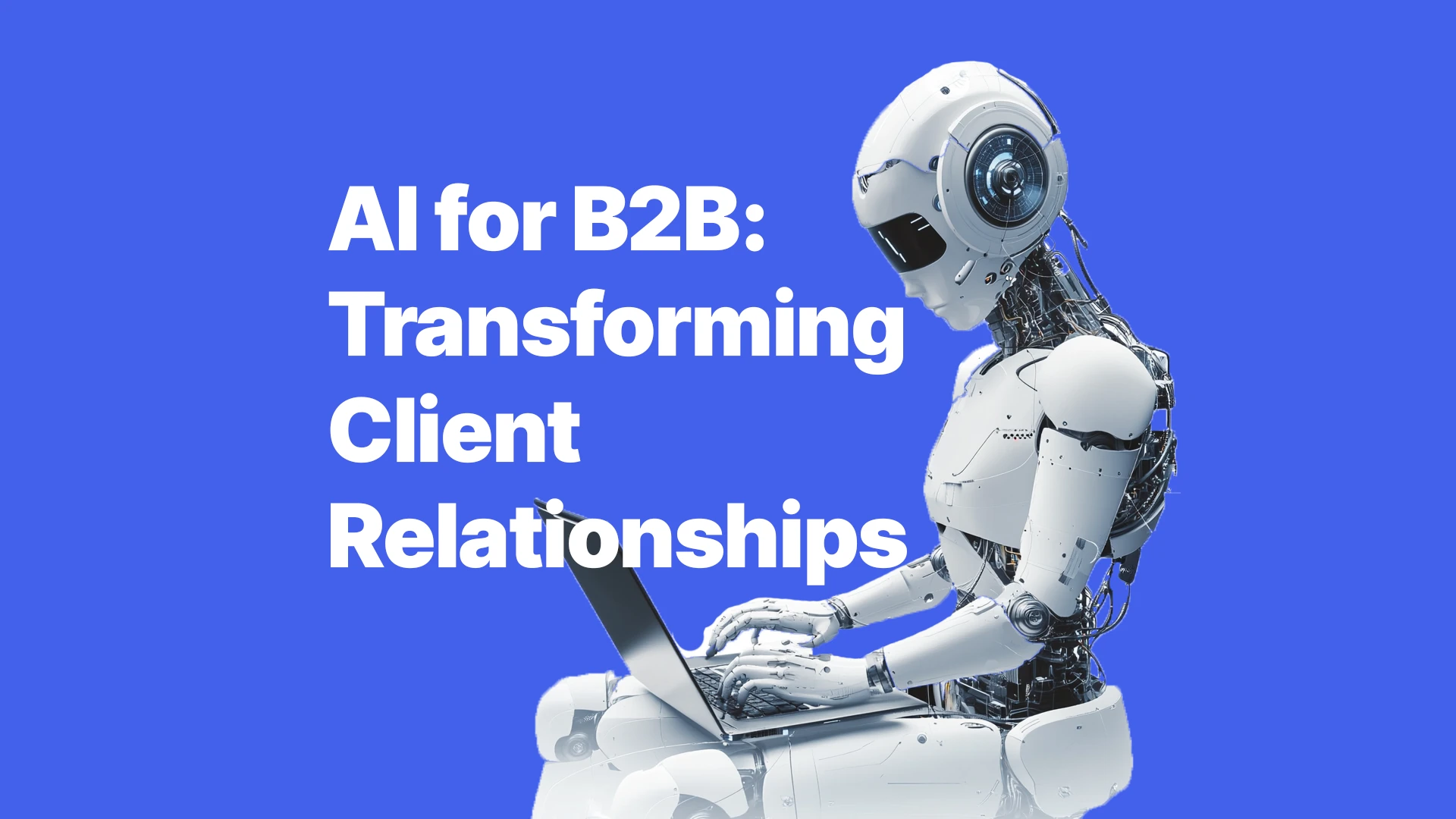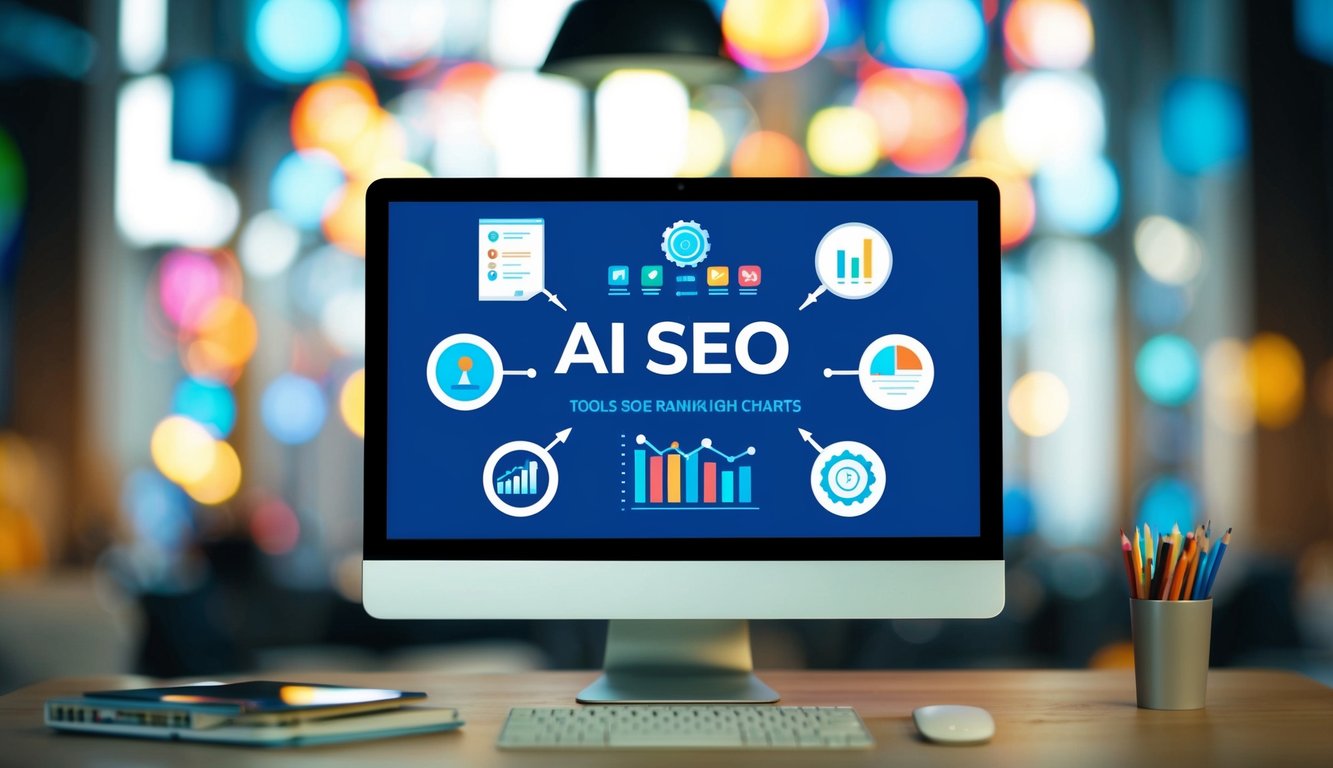As a B2B startup founder, I’ve seen AI revolutionize our industry, creating unparalleled opportunities for innovation and growth. The rapidly evolving landscape demands that companies embrace robust AI tech stacks to remain competitive and offer cutting-edge solutions to clients. This technological shift has become essential for startups aiming to thrive in today’s market.

I remember when we first incorporated AI into our product suite. The impact was immediate and profound. Our clients were amazed by the efficiency gains and the new insights we could provide. It made me realize that understanding and implementing the right AI tech stack is crucial for any B2B startup looking to make waves in today’s market.
From my experience, building a robust AI tech stack involves careful consideration of various components. It’s not just about choosing the latest tools; it’s about creating a cohesive ecosystem that aligns with your business goals and scales with your growth. I’ll share some insights I’ve gained along the way to help you navigate this complex but rewarding journey.
Key Takeaways
- AI tech stacks are revolutionizing B2B startups by enhancing productivity and unlocking new business opportunities.
- Selecting the right AI components requires aligning technology choices with specific business objectives and scalability needs.
- Implementing AI solutions demands a balance between innovation and ethical considerations to ensure responsible growth.
Understanding AI in the B2B Context

AI is revolutionizing how B2B startups operate and deliver value to their customers. I’ve seen firsthand how this technology is reshaping business relationships and driving innovation across industries.
Defining AI and Its Relevance for Startups
AI, or artificial intelligence, refers to computer systems that can perform tasks typically requiring human intelligence. For B2B startups, AI opens up exciting possibilities. I’ve worked with several companies that use machine learning algorithms to analyze vast amounts of data, spotting trends humans might miss.
AI-powered chatbots and virtual assistants are transforming customer service. They’re available 24/7, handling routine queries and freeing up human agents for more complex issues. It’s amazing to see how quickly customers adapt to these AI interfaces.
Predictive analytics is another game-changer. I recently helped a startup implement an AI system that forecasts customer churn with impressive accuracy. This allows them to proactively address issues before they lose clients.
The Rise of AI Startups in the B2B Space
The B2B sector is witnessing a surge in AI-focused startups. These companies are developing specialized solutions for industries like finance, healthcare, and manufacturing.
One startup I advised creates AI-powered supply chain optimization tools. Their algorithms can predict disruptions and suggest alternative suppliers, saving clients millions in potential losses.
Another exciting area is AI-driven marketing automation. These platforms use machine learning to personalize content and optimize ad spending across multiple channels. The results I’ve seen are often mind-blowing, with some clients doubling their ROI.
Cybersecurity is yet another field where AI startups are making waves. By analyzing network traffic patterns, these systems can detect and respond to threats in real time.
How AI Is Transforming B2B Relationships
AI is reshaping how businesses interact with their clients and partners. I’ve noticed a shift towards more personalized, data-driven relationships.
AI-powered CRM systems now offer detailed insights into customer behavior and preferences. This allows sales teams to tailor their approach and offer more relevant solutions. It’s like having a crystal ball that shows you exactly what your clients need!
Collaborative AI tools are enhancing communication between businesses. I recently used an AI platform that facilitates smoother project management across organizations. It anticipates bottlenecks and suggests workflow improvements.
AI is also enabling more efficient B2B marketplaces. These platforms use machine learning to match buyers with the most suitable suppliers, considering factors like price, quality, and delivery times.
AI Tech Stack Essentials

Building an effective AI tech stack is crucial for B2B startups looking to leverage artificial intelligence. I’ve seen firsthand how the right combination of tools and technologies can make or break an AI-driven venture. Let’s explore the key components that startups need to consider.
The Layers of an AI Tech Stack
At the foundation, we have the data layer. This is where all the magic begins! I like to think of it as the fuel that powers our AI engines. We’re talking about databases, data lakes, and pipelines that feed information to our models.
Next up is the infrastructure layer. This is the backbone of our AI operations. Cloud platforms like AWS, Google Cloud, or Azure are the go-to choices here. They provide the computing muscle we need to train and run our models.
The AI/ML layer is where the real fun happens. This is where we build and deploy our models. Tools like TensorFlow, PyTorch, and scikit-learn are popular choices. I remember the first time I got a complex model to work – it felt like solving a Rubik’s cube blindfolded!
Lastly, we have the application layer. This is where our AI meets the real world. APIs, user interfaces, and integration tools help deliver AI-powered solutions to end-users.
Infrastructure Requirements for AI Startups
When it comes to infrastructure, scalability is key. I learned this the hard way when our first AI project went viral! We need systems that can handle growing data volumes and increasing computational demands.
GPU resources are often essential for training complex models. Cloud providers offer specialized instances for this purpose. It’s like having a supercomputer at your fingertips!
Data storage solutions must be robust and secure. We’re dealing with sensitive information, after all. A mix of relational databases and NoSQL solutions often works best.
Containerization tools like Docker help standardize deployment across different environments. It’s a lifesaver when moving from development to production.
Key Technologies Powering AI Startups
Generative AI is all the rage right now. Tools like OpenAI’s GPT models are revolutionizing how we approach natural language processing tasks. I’m constantly amazed by what these models can do!
For computer vision tasks, convolutional neural networks (CNNs) are still the go-to choice. They’re like the eagle eyes of the AI world.
AutoML platforms are gaining traction, making AI more accessible to non-experts. It’s like having an AI assistant to help you build AI!
MLOps tools help manage the entire lifecycle of AI projects. From version control to monitoring, they keep our AI initiatives on track.
Big data technologies like Apache Spark and Hadoop are crucial for handling large-scale data processing. They’re the heavyweight champions of the data world.
AI Models and Machine Learning

AI models and machine learning form the core of modern B2B startup technologies. These tools enable businesses to extract insights, automate processes, and create innovative solutions.
Fundamentals of AI Models
AI models are the brains behind intelligent systems. I’ve seen firsthand how they can transform raw data into actionable insights. These models use complex algorithms to recognize patterns, make predictions, and solve problems.
Some popular types include neural networks, decision trees, and support vector machines. Each has its strengths and use cases. For example, neural networks excel at image recognition, while decision trees are great for classification tasks.
I often remind startups that choosing the right model is crucial. It depends on the specific problem, available data, and desired outcomes.
Machine Learning and Its Importance
Machine learning is the engine that powers AI models. It’s the process that allows systems to improve automatically through experience. I’m constantly amazed by its ability to uncover hidden patterns in data.
Supervised learning uses labeled data to train models. Unsupervised learning finds patterns in unlabeled data. Reinforcement learning improves through trial and error.
For B2B startups, machine learning can:
- Predict customer behavior
- Optimize supply chains
- Detect fraud
- Personalize product recommendations
I’ve seen startups leverage these capabilities to gain a competitive edge and drive growth.
Developing Custom AI Models
While pre-trained models are useful, custom AI models can provide unique value. They’re tailored to a company’s specific data and business needs.
Creating custom models requires:
- Defining the problem
- Collecting and preparing data
- Choosing an architecture
- Training and fine-tuning
- Evaluating performance
I’ve found that startups often underestimate the resources needed for custom development. It’s a complex process that demands expertise and computational power.
However, the results can be game-changing. Custom models can solve niche problems and create proprietary solutions that set a startup apart in the market.
Implementing AI Applications

AI applications are transforming how B2B startups operate. I’ve seen firsthand how these tools can streamline workflows, enhance customer support, and unlock insights from unstructured data. Let’s explore some key ways to implement AI in your startup.
Workflow Integration with AI
I’ve found that integrating AI into existing workflows can be a game-changer. For example, I once helped a marketing team use AI-powered content generation tools to create first drafts of blog posts. It saved them hours of work!
Here are some other ways AI can boost workflow efficiency:
• Automated data entry and processing • Smart email categorization and prioritization • AI-assisted project management and task allocation
The key is to start small. Pick one repetitive task and experiment with an AI solution. You’ll be amazed at how quickly it can free up your team’s time for more strategic work.
AI for Enhanced Customer Support
Remember the days of endlessly waiting on hold? AI is changing that! I’ve seen startups use chatbots and virtual assistants to provide 24/7 customer support. It’s like having a tireless team member who never sleeps.
Some effective AI applications for customer support include:
- Intelligent routing of customer queries
- Automated responses to common questions
- Sentiment analysis to flag urgent issues
I once worked with a startup that used AI to analyze support tickets. It helped them identify recurring problems and proactively address them. The result? Happier customers and fewer support tickets overall.
Unstructured Data and AI
Unstructured data used to be a headache for businesses. Now, it’s a goldmine of insights waiting to be tapped. I’ve seen AI tools extract valuable information from sources like:
• Customer reviews and social media posts • Call center transcripts • Images and videos
One startup I advised used natural language processing to analyze customer feedback. They uncovered product improvement ideas they’d never have thought of otherwise. It was like having thousands of product testers working around the clock!
AI can also help categorize and organize unstructured data, making it searchable and actionable. It’s like having a super-efficient digital librarian on your team.
AI Platform and Tool Ecosystem

I’ve found that choosing the right AI tools and platforms can make or break a B2B startup’s success. Let’s explore some key components of a robust AI tech stack.
Leveraging Cloud Services for AI
When it comes to cloud services for AI, AWS is my go-to choice. Their SageMaker platform offers a comprehensive suite of machine-learning tools that I’ve used to build, train, and deploy models quickly. I particularly love how it integrates seamlessly with other AWS services like S3 for data storage.
Databricks is another powerhouse I’ve had great success with. Their unified analytics platform combines the best of data engineering and machine learning. I remember the first time I used their collaborative notebooks – it was a game-changer for my team’s productivity!
Exploring AI Tools and Frameworks
Large Language Models (LLMs) have revolutionized natural language processing tasks. I’ve been amazed by the capabilities of models like GPT-3 and BERT. These models have helped me create chatbots and content-generation tools that feel almost human-like in their interactions.
For data storage and retrieval, I’ve found vector databases to be incredibly useful. They’ve allowed me to build powerful recommendation systems and similar search engines. It’s like having a supercharged search function at my fingertips!
SaaS Products With AI Capabilities
Salesforce has been a lifesaver for my CRM needs. Their Einstein AI features have helped me automate lead scoring and predict customer churn. It’s like having a crystal ball for my sales pipeline!
I’ve also integrated AI-powered tools into my marketing stack. Tools like Grammarly for content optimization and Hootsuite Insights for social media analytics have saved me countless hours. It’s incredible how these SaaS products can bring enterprise-level AI capabilities to startups like mine.
Building AI Startups with Scalability in Mind

I’ve found that successful AI startups prioritize scalability from day one. It’s crucial to design architectures, manage data, and maintain agility as the company grows. Let me share some key insights I’ve gained in this area.
Scalable AI Architectures
When I built my first AI startup, I learned the hard way that scalability is paramount. We need to design systems that can handle increasing loads without a complete overhaul. I recommend using microservices architecture – it’s been a game-changer for me.
Breaking down the AI system into smaller, independent services allows for easier scaling and maintenance. I’ve seen startups thrive by leveraging containerization technologies like Docker and orchestration tools like Kubernetes. These provide the flexibility to scale specific components as needed.
Cloud-native architectures have also proven invaluable in my experience. They offer auto-scaling capabilities and pay-as-you-go models, perfect for startups with fluctuating demands.
Data Layer and Vector Databases
I can’t stress enough the importance of a robust data layer. As AI models grow hungrier for data, traditional databases often struggle to keep up. That’s where vector databases come in – they’re a real lifesaver for AI applications.
Vector databases efficiently store and retrieve high-dimensional data, crucial for machine learning models. I’ve had great success using options like Pinecone or Milvus. They’ve significantly sped up similarity searches and recommendation systems in my projects.
For real-time processing, I’ve found streaming data platforms like Apache Kafka indispensable. They handle large volumes of data with low latency, keeping AI models up-to-date.
Proper data versioning and lineage tracking are also key. Tools like DVC (Data Version Control) have saved me countless headaches when scaling up operations.
Ensuring AI System Agility
Agility is the name of the game in the fast-paced world of AI startups. I’ve learned to embrace modular AI model architectures. They allow for quick updates and improvements without disrupting the entire system.
I always implement robust CI/CD pipelines for my AI models. Automated testing and deployment processes ensure that new iterations can be rolled out smoothly as the startup scales.
Feature stores have been another game-changer in my toolkit. They centralize feature engineering and make it easier to reuse features across different models and applications.
Lastly, I can’t overemphasize the importance of monitoring and observability. As systems grow, having real-time insights into model performance and data drift becomes crucial. Tools like Prometheus and Grafana have been invaluable in my scaling journey.
Legal and Ethical Considerations

As I’ve worked with AI startups, I’ve seen firsthand how crucial it is to navigate the complex legal and ethical landscape. Trust me, getting this right from the start can save you major headaches down the road!
AI and Data Privacy Laws
I always tell founders to brush up on GDPR, CCPA, and other data protection regulations. These laws have teeth! You’ll need robust data governance policies and clear user consent mechanisms. I once saw a startup get slapped with huge fines for sloppy data practices – don’t let that be you.
Make sure your AI models are trained on properly sourced and anonymized data. It’s also smart to implement data minimization techniques. Only collect and retain what you absolutely need.
Regular privacy impact assessments are a must. As your AI evolves, so do the potential risks. Stay vigilant!
Ethics in AI Development and Deployment
Developing ethical AI isn’t just the right thing to do – it’s good business. I always emphasize the importance of diverse, inclusive teams when building AI systems. Different perspectives help catch biases early.
Implement rigorous testing for fairness and bias. It’s amazing how often subtle discriminatory patterns can creep in if you’re not careful. I’ve seen startups use techniques like adversarial debiasing to great effect.
Transparency is key. Be prepared to explain how your AI makes decisions, especially in high-stakes domains. Consider forming an external ethics advisory board for an outside perspective.
Ownership and Intellectual Property in AI
The IP landscape for AI is tricky and evolving fast. Generally, the company owns AI models developed by employees. But what about open-source components? Or models trained on user data?
I always advise startups to have clear IP agreements with employees and contractors. Spell out who owns what, including any AI innovations.
Patent protection for AI can be challenging. Focus on novel applications rather than general algorithms. Trade secret protection is often a good alternative for proprietary models.
Be cautious with APIs and cloud deployments. Make sure your terms of service protect your IP rights. I’ve seen startups accidentally give away valuable IP through poorly written agreements.
Growing an AI Startup

Launching and scaling an AI startup requires strategic planning, resourcefulness, and a deep understanding of the rapidly evolving tech landscape. I’ve found that success often hinges on securing the right funding, building a strong network, and leveraging external expertise to accelerate growth.
Finding Funding and Resources
Securing funding for an AI startup can be challenging, but I’ve seen several effective approaches. Angel investors and venture capital firms specializing in AI are great starting points. I once attended a pitch competition where a startup secured $2 million by showcasing a unique natural language processing algorithm.
Grants from government agencies and tech giants like Google and Microsoft can provide crucial early-stage funding. Don’t overlook accelerator programs either – they offer mentorship, networking, and sometimes seed funding.
Crowdfunding platforms have also proven successful for AI projects with broad consumer appeal. I remember a friend’s computer vision startup that raised $500,000 on Kickstarter by demonstrating an innovative object recognition app.
Navigating the AI Startup Ecosystem
The AI startup ecosystem is dynamic and competitive. Networking is key – I’ve made valuable connections at AI conferences, hackathons, and local tech meetups. These events are goldmines for finding potential co-founders, advisors, and even customers.
Online communities like AI forums and GitHub can help you stay updated on the latest developments and connect with talent. I once hired a brilliant data scientist I met through a machine learning subreddit.
Partnerships with universities can provide access to cutting-edge research and potential interns. Many universities have entrepreneurship centers that support student and faculty startups.
Joining an AI-focused incubator can offer structured guidance and introductions to investors. I’ve seen startups transform their business models and tech stacks through these programs.
Outsourcing to Accelerate AI Deployment
Outsourcing certain aspects of AI development can help startups move faster and focus on their core competencies. I’ve worked with startups that outsourced data labeling to specialized firms, freeing up their in-house team to focus on algorithm development.
Cloud services from AWS, Google Cloud, and Azure offer powerful AI tools and infrastructure that can dramatically reduce development time and costs. I once helped a startup cut its model training time in half by leveraging cloud GPUs.
Partnering with established AI companies can provide access to advanced technologies and expertise. I know of a healthcare AI startup that accelerated its product development by six months through a strategic partnership with a larger tech firm.
Outsourcing non-core functions like marketing or customer support can also help startups allocate more resources to AI development. Just be sure to maintain control over your key intellectual property and data.
Future Trends and Innovations

AI technology is evolving rapidly, reshaping how B2B startups operate and innovate. The coming years promise exciting advancements that will transform business processes and open new opportunities for growth.
Advancements in Generative AI and LLMs
I’ve been amazed by the leaps in generative AI and large language models (LLMs) lately. These technologies are becoming increasingly sophisticated, producing human-like text, images, and even code. For B2B startups, this means more powerful tools for content creation, customer support, and product development.
I recently tried an LLM-powered writing assistant and was blown away by its ability to draft compelling marketing copy in seconds. It’s not perfect, but it’s a huge time-saver.
Generative AI is also making waves in design and prototyping. I’ve seen startups use it to quickly iterate on product concepts, saving weeks of manual work.
The Role of AI in Productivity and Efficiency
AI is revolutionizing productivity across industries. I’m particularly excited about AI-powered project management tools that can predict bottlenecks and suggest optimal resource allocation.
Automation is reaching new heights, too. I recently visited a startup that is using AI to streamline its entire customer onboarding process. It was impressive to see how much time and effort they saved.
Some key areas where I see AI boosting efficiency:
- Intelligent document processing
- Predictive maintenance
- Automated data analysis and reporting
- Smart scheduling and task prioritization
These advancements are allowing startups to do more with less, freeing up human talent for higher-value tasks.
Predictions for the AI Landscape
Looking ahead, I believe we’ll see AI become even more integrated into everyday business operations. Here are a few predictions I’m confident about:
- More specialized AI models tailored for specific industries and use cases
- Increased focus on explainable AI to build trust and meet regulatory requirements
- AI-powered decision support systems becoming standard in executive suites
- Advancements in federated learning allow for better data privacy and collaboration
I also expect to see a surge in AI-first startups built from the ground up to leverage these technologies. It’s an exciting time to be in the B2B space, with AI opening up possibilities we could only dream of a few years ago.
As someone who’s been following the AI landscape closely, I can’t wait to see how these trends unfold and shape the future of business.
Frequently Asked Questions

I’ve compiled some common queries about AI tech stacks for B2B startups. These address key components, benefits, integration challenges, and real-world examples to help you navigate this exciting field.
What are the essential components of an AI tech stack for a B2B startup?
In my experience, a solid AI tech stack for B2B startups typically includes machine learning frameworks, data processing tools, and cloud infrastructure. I’ve seen TensorFlow and PyTorch dominate the ML framework space.
Apache Spark is a popular choice for data processing. It’s like a Swiss Army knife for big data!
Cloud-wise, AWS, Google Cloud, and Azure offer robust AI services. I once worked with a startup that leveraged AWS SageMaker to great effect.
How can AI-driven CRM tools, like those offered by HubSpot, benefit a B2B startup?
AI-powered CRM tools can be game-changers for B2B startups. I’ve witnessed firsthand how they streamline lead scoring and automate follow-ups.
HubSpot’s AI features, for instance, can predict which leads are most likely to convert. It’s like having a crystal ball for your sales team!
These tools also offer personalized content recommendations, making your marketing efforts more targeted and effective.
What considerations should a B2B startup make when integrating AI into its existing tech stack?
Compatibility is key when integrating AI into your existing stack. I learned this the hard way in a previous project!
Data quality and availability are crucial. You’ll need clean, relevant data to train your AI models effectively.
Consider the skill set of your team. Do you have the in-house expertise to manage AI tools, or will you need to hire or upskill?
Scalability is another important factor. Choose solutions that can grow with your business.
Can you provide examples of successful B2B startups that have leveraged AI effectively?
Absolutely! I’m always inspired by these success stories. Gong.io uses AI for sales intelligence, analyzing customer interactions to provide insights.
Another great example is Drift, which employs AI chatbots to improve lead generation and customer service.
Crayon leverages AI for competitive intelligence, helping businesses stay ahead of market trends.
What are some common challenges faced by B2B startups when adopting AI technologies?
In my experience, data privacy and security are major concerns. B2B startups often handle sensitive client information.
Integration with legacy systems can be tricky. I once saw a startup struggle for months to make their new AI tool play nice with their old CRM.
Talent acquisition is another hurdle. The AI field is competitive, and attracting top talent can be challenging for startups.
Lastly, ROI justification can be difficult, especially in the early stages of AI adoption.
How does the selection of an AI tech stack vary between a SaaS startup and other B2B business models?
SaaS startups often prioritize scalability and multi-tenancy in their AI tech stack. I’ve seen many opt for cloud-native solutions to support rapid growth.
Other B2B models might focus more on customization. For example, a B2B manufacturer might need AI tools that integrate with IoT devices.
Data volume and velocity also play a role. SaaS companies typically deal with larger, more diverse datasets, influencing their tech stack choices.

























